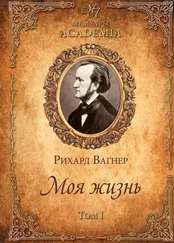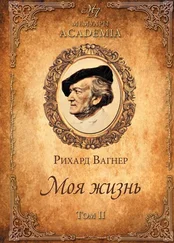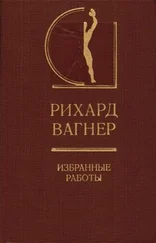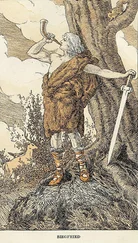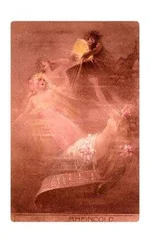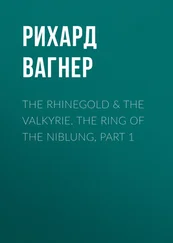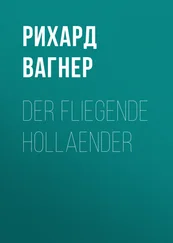Рихард Вагнер - My Life. Volume 2
Здесь есть возможность читать онлайн «Рихард Вагнер - My Life. Volume 2» — ознакомительный отрывок электронной книги совершенно бесплатно, а после прочтения отрывка купить полную версию. В некоторых случаях можно слушать аудио, скачать через торрент в формате fb2 и присутствует краткое содержание. Жанр: Биографии и Мемуары, foreign_home, music_dancing, music_dancing, foreign_antique, на английском языке. Описание произведения, (предисловие) а так же отзывы посетителей доступны на портале библиотеки ЛибКат.
- Название:My Life. Volume 2
- Автор:
- Жанр:
- Год:неизвестен
- ISBN:нет данных
- Рейтинг книги:3 / 5. Голосов: 1
-
Избранное:Добавить в избранное
- Отзывы:
-
Ваша оценка:
- 60
- 1
- 2
- 3
- 4
- 5
My Life. Volume 2: краткое содержание, описание и аннотация
Предлагаем к чтению аннотацию, описание, краткое содержание или предисловие (зависит от того, что написал сам автор книги «My Life. Volume 2»). Если вы не нашли необходимую информацию о книге — напишите в комментариях, мы постараемся отыскать её.
My Life. Volume 2 — читать онлайн ознакомительный отрывок
Ниже представлен текст книги, разбитый по страницам. Система сохранения места последней прочитанной страницы, позволяет с удобством читать онлайн бесплатно книгу «My Life. Volume 2», без необходимости каждый раз заново искать на чём Вы остановились. Поставьте закладку, и сможете в любой момент перейти на страницу, на которой закончили чтение.
Интервал:
Закладка:
I travelled through Paris and spent some days there, during which time I saw only Kietz and his friend Lindemann (whom he regarded as a quack doctor). Arriving in London on 2nd March I first went to see Ferdinand Prager. In his youth he had been a friend of the Rockel brothers, who had given me a very favourable account of him. He proved to be an unusually good-natured fellow, though of an excitability insufficiently balanced by his standard of culture. After spending the first night at his home, I installed myself the following day with his help in a house in Portland Terrace, in the neighbourhood of Regent's Park, of which I had agreeable recollections from former visits. I promised myself a pleasant stay there in the coming spring, if only on account of its close proximity to that part of the park where beautiful copper beeches over-shadowed the path. But though I spent four months in London, it seemed to me that spring never came, the foggy climate so overclouded all the impressions I received. Prager was only too eager to escort me when I went to pay the customary visits, including one to Costa. I was thus introduced to the director of the Italian Opera, who was at the same time the real leader of music in London; for he was also director of the Sacred-Music Society, which gave almost regular weekly performances of Handel and Mendelssohn.
Prager also took me to see his friend Sainton, the leader of the London orchestra. After giving me a very hearty reception he told me the remarkable history of my invitation to London. Sainton, a southern Frenchman from Toulouse, of naive and fiery temperament, was living with a full-blooded German musician from Hamburg, named Luders, the son of a bandsman, of a brusque but friendly disposition. I was much affected when I heard, later on, of the incident which had made these two men inseparable friends. Sainton had been making a concert tour by way of St. Petersburg, and found himself stranded at Helsingfors in Finland, unable to get any further, pursued as he was by the demon of ill-luck. At this moment the curious figure of the modest Hamburg bandsman's son had accosted him on the staircase of the hotel, asking whether he would be inclined to accept his offer of friendship and take half of his available cash, as he (Luders) had of course noticed the awkwardness of the other's position. From that moment the two became inseparable friends, made concert tours in Sweden and Denmark, found their way back in the strangest fashion to Havre, Paris, and Toulouse, by way of Hamburg, and finally settled down in London—Sainton to take an important post in the orchestra, while Luders got along as best he could by the drudgery of giving lessons. Now I found them living together in a pretty house like a married couple, each tenderly concerned for his friend's welfare. Luders had read my essays on art, and my Oper und Drama in particular moved him to exclaim, 'Donnerwetter, there's something in that!' Sainton pricked up his ears at this, and when the conductor of the Philharmonic concerts (the great Mr. Costa himself), for some unknown reason, quarrelled with the society before the season began and refused to conduct their concerts any longer, Sainton, to whom Mr. Anderson, the treasurer, had gone for advice in this awkward predicament, recommended them, at Luders' instigation, to engage me. I now heard that they had not acted upon this suggestion at once. Only when Sainton happened to remark casually that he had seen me conduct in Dresden did Mr. Anderson decide to make the journey to Zurich to see me (in the fur coat lent by Sainton for the purpose), as a result of which visit I was now here. I soon discovered, too, that Sainton had in this case acted with the rashness characteristic of his nation. It had never occurred to Costa that he would be taken seriously in his statement to the Philharmonic Society, and he was thoroughly disgusted at my appointment. As he was at the head of the same orchestra which was at my disposal for the Philharmonic concerts, he was able to foster an attitude of hostility to the undertakings for which I was responsible, and even my friend Sainton had to suffer from his animosity without actually realising the source of the annoyance.
As time went on I saw this more plainly, while there was abundant material for unpleasantness of every description in other quarters. In the first place Mr. Davison, the musical critic of the Times, adopted a most hostile attitude, and it was from this that I first realised, clearly and definitely, the effect of my essay entitled 'Judaism in Music.' Prager had further informed me that Davison's extremely powerful position on the Times had accustomed him to expect every one who came to England on business connected with music to propitiate him by all sorts of delicate attentions. Jenny Lind was one whose submission to these pretensions did much to ensure her popular success; whereas Sontag considered that her rank as Countess Rossi elevated her above such considerations. As I had been completely absorbed in the delight of handling a good, full orchestra, with which I hoped to give some fine performances, it was a great blow to learn that I had no control whatever over the number of rehearsals I thought necessary for the concerts. For each concert, which included two symphonies and several minor pieces as well, the society's economical arrangements allowed me only one rehearsal. Still I went on hoping that the impression produced by the performances I conducted might even here justify the demand for a special effort. It proved absolutely impossible, however, to depart in any way from the beaten track, and, realising this, I at once felt that the fulfilment of the task I had undertaken was a terrible burden. At the first concert we played Beethoven's Eroica, and my success as a conductor seemed so marked that the committee of the society were evidently prepared to make a special effort for the second. They demanded selections from my own compositions as well as Beethoven's Ninth Symphony, and conceded me two rehearsals as an exceptional favour. This concert went off quite passably. I had drawn up an explanatory programme for my Lohengrin Overture, but the words 'Holy Grail' and 'God' were struck out with great solemnity, as that sort of thing was not allowed at secular concerts. I had to content myself with the chorus from the Italian Opera for the symphony, besides putting up with a baritone whose English phlegm and Italian training drove me to despair at the rehearsal. All I understood of the English version of the text was, 'Hail thee joy' for Freudeschoner Gotterfunken. The Philharmonic Society appeared to have staked everything on the success of this concert, which, in fact, left nothing to be desired. They were accordingly horrified when the Times reporter fell on this performance, too, with furious contempt and disparagement. They appealed to Prager to persuade me to offer Mr. Davison some attentions, or at least to agree to meet that gentleman and be properly introduced to him at a banquet to be arranged by Mr. Anderson. But Prager now knew me well enough to dash their hopes of obtaining any concession of that sort from me. The banquet fell through, and, as I saw later, the society began from that time forward to regret my appointment, realising that they had an entirely intractable and pig-headed person to deal with.
As the Easter holidays began after the second concert, thereby involving a long pause, I asked my friend's advice as to whether it would not be more sensible to give up the whole thing—this conductorship of the Philharmonic concerts which I had so soon discovered to be a foolish and fruitless undertaking—and go quietly back to Zurich. Prager assured me that the execution of this resolve would in no wise be regarded as a reflection on the situation, but simply as a deplorable piece of rudeness on my part, and that the principal sufferers would be my friends. This decided me, and I stayed—without, it is true, any hope of giving a fresh impetus to musical life in London. The only stimulating incident occurred on the occasion of the seventh concert, which was the evening chosen by the Queen for her annual visit to these functions. She expressed a wish through her husband, Prince Albert, to hear the Tannhauser Overture. The presence of the court certainly lent a pleasing air of ceremony to the evening, and I had, too, the pleasure of a fairly animated conversation with Queen Victoria and her Consort in response to their command. The question arose of putting my operas on the stage, and Prince Albert objected that Italian singers would never be able to interpret my music. I was amused when the Queen met this objection by saying that, after all, a great many Italian singers were really Germans. All this made a good impression and, it was obvious, served as a demonstration in my favour, without, however, influencing the real situation to any appreciable extent. The leading papers still announced, as before, that every concert I conducted was a fiasco. Ferdinand Hiller actually thought himself justified in proclaiming, for the consolation of his friends, that my day in London was coming to an end, and that my banishment was practically a certainty. This was on the occasion of the Rhenish Musical Festival, which was held at that time. As a set-off against this I reaped great satisfaction from a scene which took place at the close of the eighth and last concert which I conducted—one of those strange scenes which now and again result from the long-suppressed emotion of those concerned. The members of the orchestra had at once realised, after my successes, the advisability of avoiding any expression of sympathy with me if they wished to keep in good odour with their real though unacknowledged chief, Mr. Costa, and save themselves from a possible speedy dismissal at his hands. This was the explanation given me when the signs of appreciation, which I had become accustomed to receive from the players in the course of our work together, suddenly ceased. Now, however, at the end of the series their suppressed feelings burst forth, and they crowded round me on all sides with deafening cheers, while the audience, who usually left the hall noisily before the end, likewise formed up in enthusiastic groups and surrounded me, cheering warmly and pressing my hand. Thus both players and listeners combined to make my farewell a scene of cordiality which could hardly be surpassed.
Читать дальшеИнтервал:
Закладка:
Похожие книги на «My Life. Volume 2»
Представляем Вашему вниманию похожие книги на «My Life. Volume 2» списком для выбора. Мы отобрали схожую по названию и смыслу литературу в надежде предоставить читателям больше вариантов отыскать новые, интересные, ещё непрочитанные произведения.
Обсуждение, отзывы о книге «My Life. Volume 2» и просто собственные мнения читателей. Оставьте ваши комментарии, напишите, что Вы думаете о произведении, его смысле или главных героях. Укажите что конкретно понравилось, а что нет, и почему Вы так считаете.

